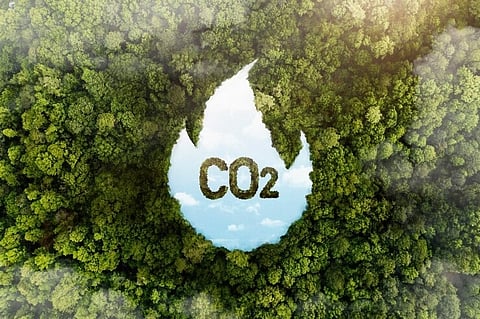
- NEWS
- the EDIT
- COMMENTARY
- BUSINESS
- LIFE
- SHOW
- ACTION
- GLOBAL GOALS
- SNAPS
- DYARYO TIRADA
- MORE

Controversial credits bought by corporations to offset their carbon emissions will be in the spotlight at UN climate talks next month as these credits allow them to label everything from shampoo to air travel as "carbon neutral."
Carbon credits have been debated since their inclusion in the 1997 Kyoto Protocol.
But their reputation was hit hard this year when several scientific studies and investigative reports questioned the credibility of the lucrative voluntary market, which lie outside the UN process.
"The absence of standards, regulations and rigor in voluntary carbon market credits is deeply concerning," UN Secretary General Antonio Guterres told the COP27 climate conference last year.
Carbon credits are derived from projects that claim to absorb or store CO2 through their implementation. That could be anything from fighting deforestation, replacing wood-burning stoves, or replacing coal-fired power plants with wind turbines.
One credit equals the reduction or removal of one ton of CO2 from the atmosphere, and companies can buy these credits to "compensate" for their carbon footprint.
That, at least, is how it looks on paper.
The climate talks starting in November will try to iron out these details for states to enter the carbon-offset market, despite the concerns of researchers.
COP28 host the United Arab Emirates has said it hopes for progress during the Dubai conference to "get credibility in the markets."
"Since I've been studying carbon offset quality for over two decades, quality has been consistently poor and very poor," director of the Berkeley Trading Project Barbara Haya told AFP.
Haya and her team carried out a study on averted deforestation.
They concluded that emission reductions and the benefits of the projects had been "exaggerated" and had often violated the rights of local populations, adding that there was no guarantee project inspectors were independent and the practices of carbon credit certifiers such as Verra and Gold Standard were lax.
"All participants in the market as it is structured today benefit from more credits," Haya said.
And that means too many credits are issued and most fail to make the promised reductions.
WITH AFP
